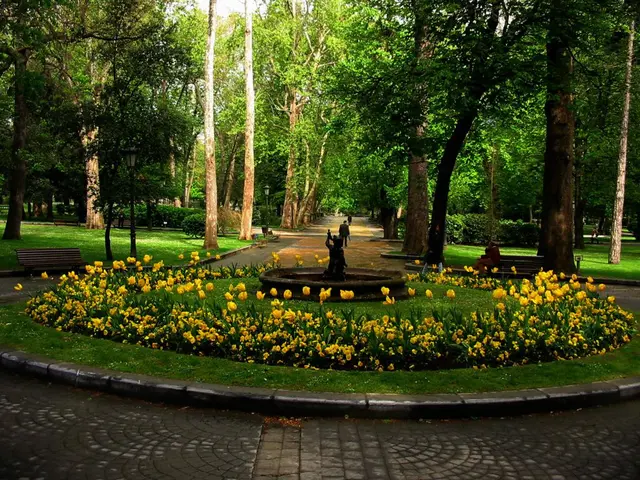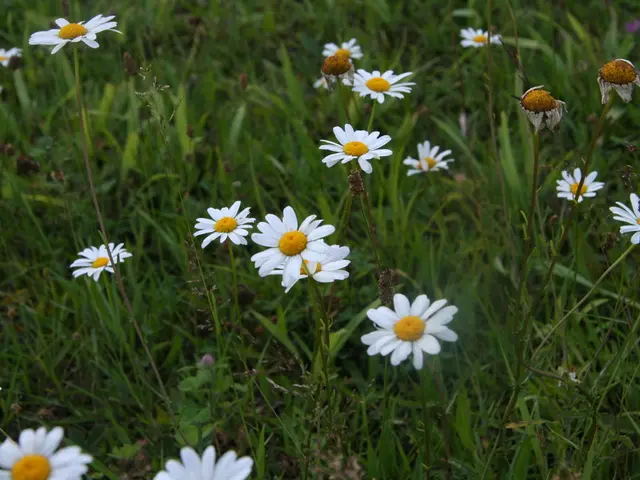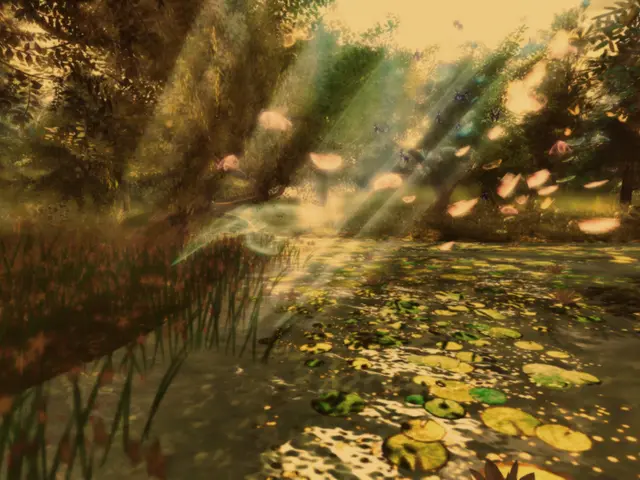Yearly Garden Mulching: Essential or Overrated?
Refreshing Your Garden's Curb Appeal: Mulching 101
Mulching your garden isn't just a trend; it's a powerful gardening technique that can take your outdoor space to the next level. This enchanting layer of organic material serves as a protective shield for your precious plants, and it has plenty of perks to boast about. However, there's a misconception that mulching needs to be done every year. Let's set the record straight and explore when, why, and how you should mulch your garden beds for optimal results.
Swiping Right on Mulch: Making the Perfect MatchMulch has a plethora of benefits but remember, it's all about compatibility. Whether you're tight on cash or time, the trick is to find the best mulch for your lifestyle and wallet. Celina DeBrito, the head gardener at Pippin Hill Farm & Vineyards, suggests opting for bulk purchases or waiting for sales on popular mulching options like shredded hardwood, pine bark mulch, or pine straw mulch. But don't fret; diversity is key, and these alternatives pack a punch!
The Joys of Mulching: Top Benefits
- Increased Water Retention: Mulch helps to conserve water by keeping moisture locked away in the roots, reducing the need for frequent watering. "Tickle your thirsty plants less with this clever moisture saver!" says DeBrito.
- Weed Control: The sunlight-blocking layers of mulch can disrupt the life cycle of pesky weed seeds, preventing them from germinating. Mulch creates a barrier that young weeds find tough to push through, keeping your garden looking pristine.
- Soil Erosion Prevention: Mulch guards your soil from the destructive power of water, minimizing soil erosion and protecting the soil structure.
When to Play Dress Up: Timing In Mulching
While annual mulching isn't an absolute must, there are circumstances that call for a fresh coat of mulch. Here's when to keep your gardening tools handy:
- Thin Layers: If the mulch measures less than 2 inches deep, a new layer is in order to enhance moisture retention and give your plants an extra cushion.
- Fungus Infections: Too much of a good thing can lead to unwanted guests like fungi. Keep an eye out for fungal overgrowth, especially after prolonged wet weather. Rake the old layer, break up the fungus, and apply fresh mulch.
- Unruly Weeds: If weeds are overtaking your garden like kudzu, something's amiss with your mulch. Lay a new layer or two to help suppress the weeds and keep your garden clean.
Alternatives to Mulching: A Few Worthwhile Options
If you're not up for annual mulching, there are other tactics to keep your garden in tip-top shape. Here's how DeBrito and garden expert Janet Mavec suggest you level up your gardening game:
- Stay on top of weeding: Regular weeding is crucial to keeping your garden weed-free.
- Nurture your soil with compost: Enrich your soil with the nutrient-rich gift of compost. Test your soil regularly and make adjustments as needed to maintain ideal pH levels.
- Leaf L litter: Make use of fallen leaves by layering them in your garden in early spring, before the weeds make their grand, uninvited appearance.
- Martha Stewart, a renowned lifestyle expert, highly recommends mulching as a beneficial gardening technique that can significantly improve the appearance of your outdoor space.
- For those seeking alternatives to mulching, garden experts suggest maintaining a regular weeding routine, using compost to enrich soil, and utilizing leaf litter in early spring as effective means of maintaining a well-kept garden.
- When investing in landscaping for your home-and-garden, consider the various types of mulch such as shredded hardwood, pine bark mulch, or pine straw mulch, which can be found at budget-friendly prices with strategic bulk purchases or during sales.








